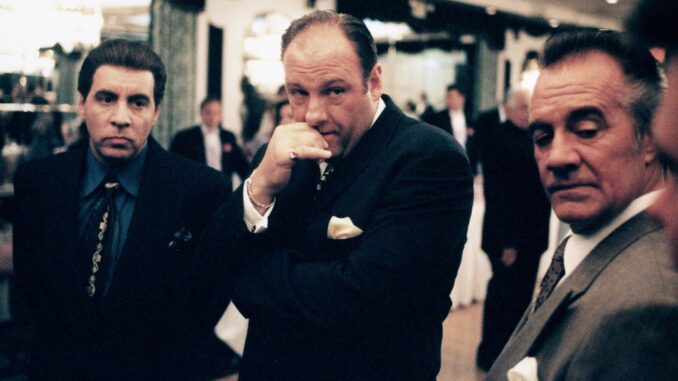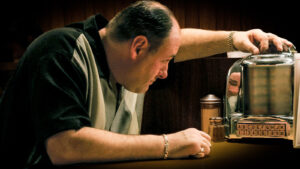
Is there any proof that Tony Soprano did not die in the series?
Butch from the New York family has Tony killed. By the time Tony goes to see Butch and Butch sanctions Tony’s hit on Phil Leotardo, Tony is no longer a powerful man. The Jersey mob are never that powerful in comparison to New York anyway, but by the end, they are pretty much all gone: Chris, Silvio, Bobby, Ralph, Pussy, Junior – there’s only Paulie left. In fact, all six seasons of the show from the very start chronicle the slow decline of Tony’s family.
So the reason Butch has Tony killed is to do with money. During the meeting Tony has with him to call off hosts, and to get a hit on Phil sanctioned, Tony complains to Butch that he wants paying for the hit on Bobby that left Janice a widow. In theory (as Tony is a family head), Butch is obliged to pay compensation, and indeed he promises to do so. But we’ve learned by now that very often the mob will kill someone they owe a debt to, rather than pay (indeed there’s an episode in the final series where Tony comes close to having Hesh killed for just that reason).
Plus Tony beats Butch’s friend to a pulp for threatening Meadow, in front of Butch, and threatens Butch with a gun, just a couple of episodes from the end, too.
And speaking of Paulie: he’s actually implicated in Tony’s death. Just before the end, you see Paulie walk into Satriale’s with a box of barbers’ scissors… And Butch’s office is in a barber shop in New York. The implication is that Paulie has been hanging around with Butch. (Scissors are a recurring “bad luck” metaphor throughout the show, too). And Paulie knows how close Tony came to killing him a few episodes from the end, too, when they’re big game fishing in Florida.
In other words, when Chase said: “it’s all in there, if you’re watching hard enough” – it is.
I quite like “the audience getting whacked” theory. It’s a neat idea… But I

think the reason we don’t see Tony get his brains blown out is a bit more subtle. From the very start, the show is about denial . Tony’s in denial about what he does for a living, thinking of himself as “a soldier” or “a captain of industry” instead of a murderer and a crook. His family are in denial about the misery their wealthy lifestyle is based on, denial that eats away at them all. Dr. Melfi is in denial about what her patient does, and about her ability to “treat him” when he’s beyond help. Indeed you could say that her breaking out of the cycle of denial and finally rejecting Tony is the “real” end of the show.
And it’s possible to read the whole show as a metaphor for the corruption of the wasteful, damaging capitalist / imperialist life we lead in the western world (in particular what the US under Bush and the UK under Blair was doing in Iraq and Afghanistan, around Indeed David Chase was interviewed in Vanity Fair around that time, and he stated for sure that that was what the show was about.
We’re all in denial about the price our comfortable lives cost the rest of the world. I don’t need to look much further than the natural resources, cheap labor, energy and pollution that went into the notebook computer I’m using to type this post, for a start…
So I think not showing Tony’s death gave the denial a chance to continue. There’s a lot of people who still believe that “Tony was a hero, and the hero doesn’t die, does he?” (I used to work with a few of them, for instance). They are the kind of people that live their own lives without a care for the consequences, too. I hope that those type of people get fewer and further between as time goes on, as there aren’t enough resources to go around if we all keep thinking like that.
Instead, in future, I hope there are more of the type of people who like to weigh things up, consider things more deeply, and understand that many or most of our actions always have consequences that reach further than it seems. That’s the kind of point of view I think the ending of the Sopranos was trying to encourage.
